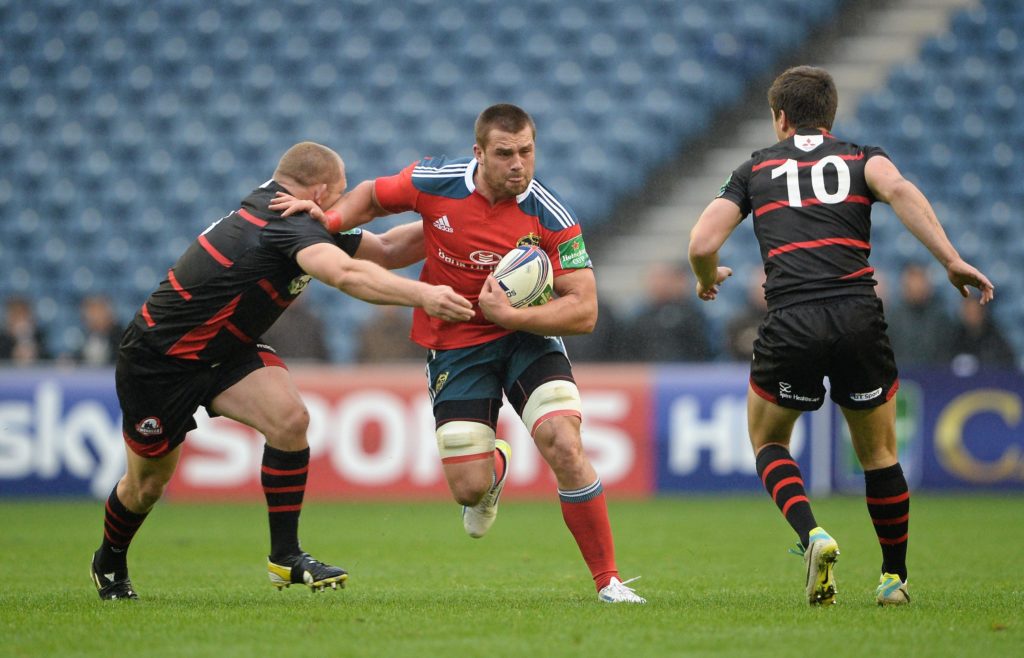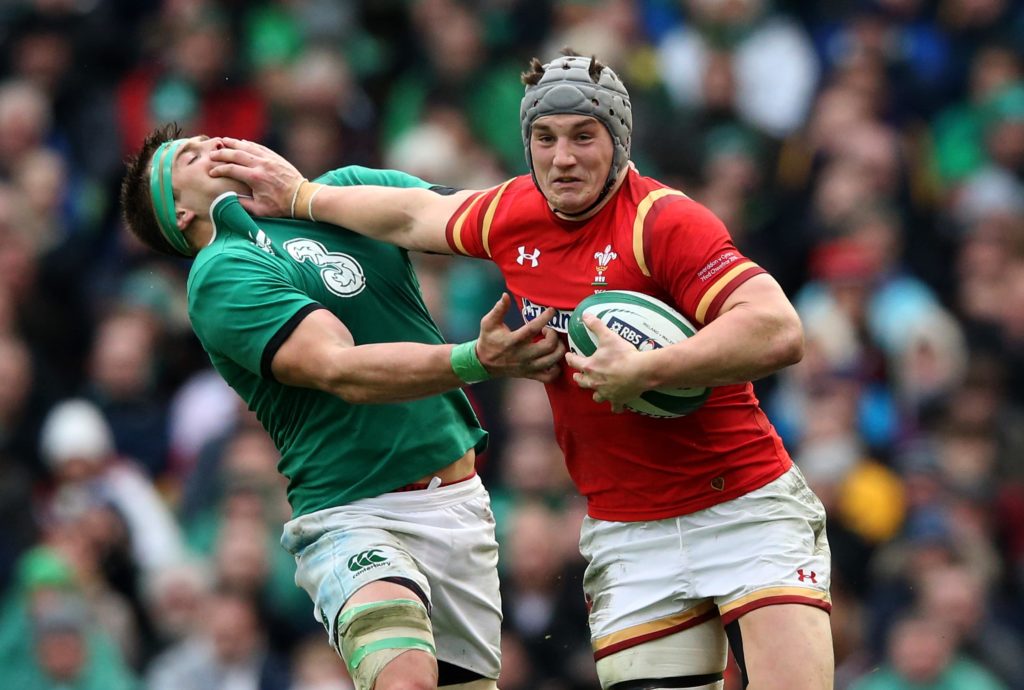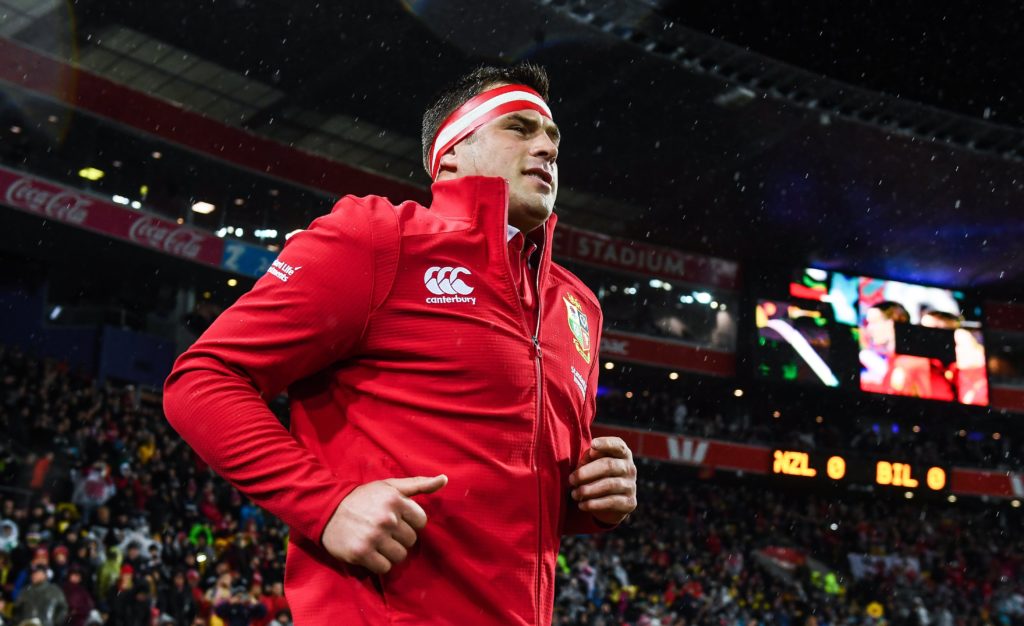Imagine how it felt to be CJ Stander, alone in a strange country, cursed with injury, struggling to learn a new language. Imagine what it was like when he stood on the Thomond Park sideline in April 2014, his contract about to expire, his CV blotted with stains. He’d been told he was too small by a Springbok coach, had been offered a derisory contract by the Bulls, his first professional club. Now he was here, 23 years old, just nine Munster starts to his name, standing at a crossroads never mind a sideline.
That afternoon, as Munster faced Toulouse in the Heineken Cup, Stander made a pact to himself. Earlier that week, he had spoken to his father back in South Africa. The gate to the family farm was being held open. “I was thinking about leaving rugby to go and farm,” Stander said in an interview with Michael Foley, in the Sunday Times, in 2015. But he was also thinking about something else, about the words Paul O’Connell had offered over coffee. “Keep the faith,” O’Connell said.
There were only 19 minutes on the clock when he replaced Peter O’Mahony. By the time the final whistle had sounded, he’d scored a try and a European giant had been slayed.
He believed in Stander, so too Anthony Foley, their late head coach and so too his wife, Jean Marié, an international-class swimmer. ‘Don’t give up’ was the recurring theme to their conversations. That day he didn’t. There were only 19 minutes on the clock when he replaced Peter O’Mahony. By the time the final whistle had sounded, he’d scored a try and a European giant had been slayed. “I said to myself, ‘If it doesn’t work after this game, you’re gone’. I put my back to the wall and tried to punch my way out,” he said.
Seven years on, the fighter has announced he is hanging up his gloves for good. No one saw this announcement coming although, in hindsight, Andy Farrell’s emotional response to Stander winning his 50th cap last Sunday, now makes a lot more sense. “He’s as honest as the day is long,” said Farrell, voice croaking.

There have been other tears. The night he phoned home in 2015 to tell his father and brother that Munster had made him captain for the season was an emotional one, his father repeating the advice then that he had given him since he was a child, ‘Remember where you came from’.
It was always the discussion around the Stander family kitchen table. This was where he learnt about life, how work has a value, not just to the pocket but the soul. Agriculturalists are like that, the land a source of pride, their animals drawing them closer to the soil.
Stander, at 22, was exactly what the politburo were looking for, a late bloomer who’d fallen through the cracks of someone else’s system but who had the potential to do a job here.
He was one of two boys reared by Jannie and Amanda Stander. Janneman, his brother, doubled up as a best friend. Christiaan Johan, CJ to everyone else, had dreams. He captained the Baby Boks, won a national discuss championship, played 52 times for the Bulls, made it into a Springbok training group. “One coach said to me, ‘You’re not big enough’,” he said.
Munster and the IRFU thought differently. A new policy was being thought up in Irish rugby, coldly termed ‘the project player’. Stander, at 22, was exactly what the politburo were looking for, a late bloomer who’d fallen through the cracks of someone else’s system but who had the potential to do a job here.
 Wales hands off Ireland’s CJ Stander” class=”wp-image-11106″ />
Wales hands off Ireland’s CJ Stander” class=”wp-image-11106″ />He arrived in 2012, with barely two words of English. Rob Penney, then Munster’s coach, introduced him to the rest of the Munster squad. “Speech!” they yelled at him. He didn’t know what speech meant. “I had only two kitbags flung over my shoulder,” he said in his retirement statement today. Yet he also had a dream in his head. “I wanted to play for Ireland,” he said in that Sunday Times interview. “Now, I wasn’t going to say that when I got off the boat. You’ve got kids growing up wanting to play for Ireland. Sometimes people will criticise you [as a project player] but that’s how the game works. You have to show you can bring something to the table. If you can’t, that’s it.”
His chance would come after the 2015 World Cup, the three-year residency commitment fulfilled. And this is where the romance of this story collides with the business side of things.
Trolls had targeted his wife, Jean-Marié, on social media. The easy thing would have been to stay quiet. Instead, Stander shamed the trolls into silence.
In Munster, Stander is loved. Any time his commitment to Ireland is questioned, they vocally defend him. He has served province and country admirably in more than 200 games, his name a byword for consistency and effort.
Yet you can’t ignore the groups of people who despise the project-player concept, even if this noisy bunch have too often failed to make a distinction between the rule and the person. This time last year Stander talked about the abuse he had received online in the aftermath of Ireland’s poor showing at the 2019 World Cup, how on his return to Ireland people greeted him with, ‘feeling sorry for me’. By now, the issue of losing a World Cup quarter-final had been relegated into second place. Something deeper was going on. Trolls had targeted his wife, Jean-Marié, on social media. The easy thing would have been to stay quiet. Instead, Stander shamed the trolls into silence.
 Lions prepare to face New Zealand” class=”wp-image-11107″ />
Lions prepare to face New Zealand” class=”wp-image-11107″ />This morning and throughout the day, the reaction on social media to the news of his impending retirement was starkly different. It was as if Ireland had grown up and accepted that it was one thing to hate the rule, but not the player. He leaves as the first project player to win 50 caps for his adopted country and goes with the knowledge that he was as good to Ireland as it was to him.
More stories from Garry Doyle
If you’ve enjoyed this article, please share it with friends or on social media. We rely solely on new subscribers to fund high-quality journalism and appreciate you sharing this so we can continue to grow, produce more quality content and support our writers.


Comments
Join free and tell us what you really think!
Sign up for free